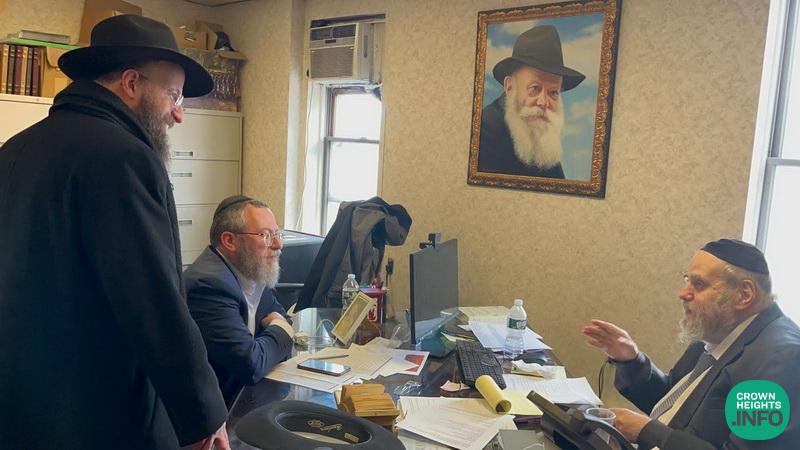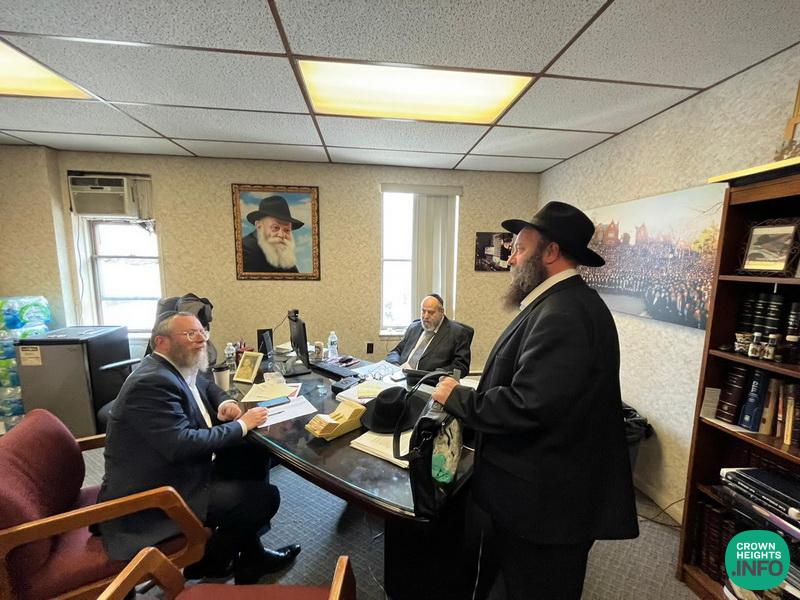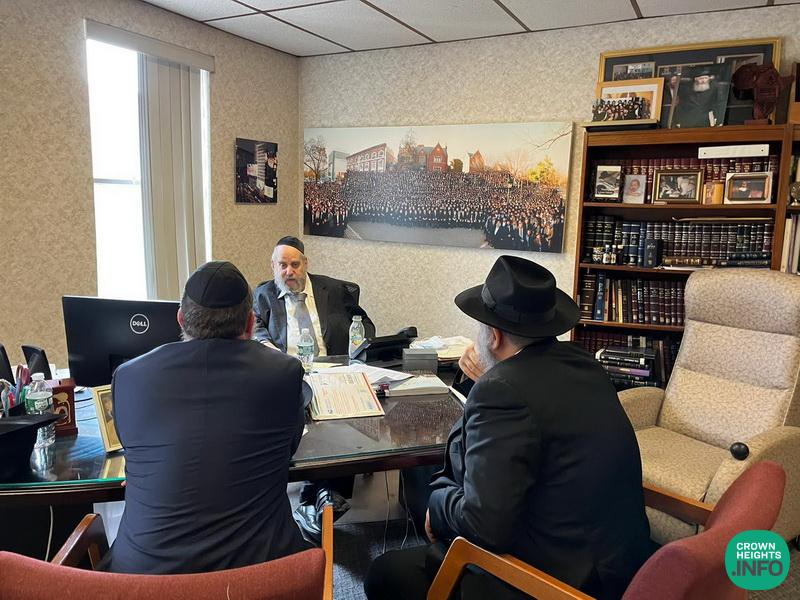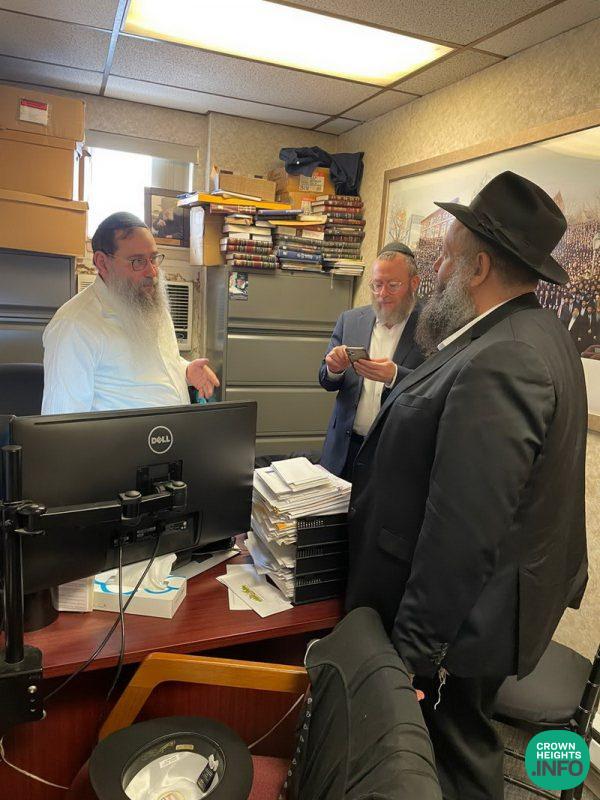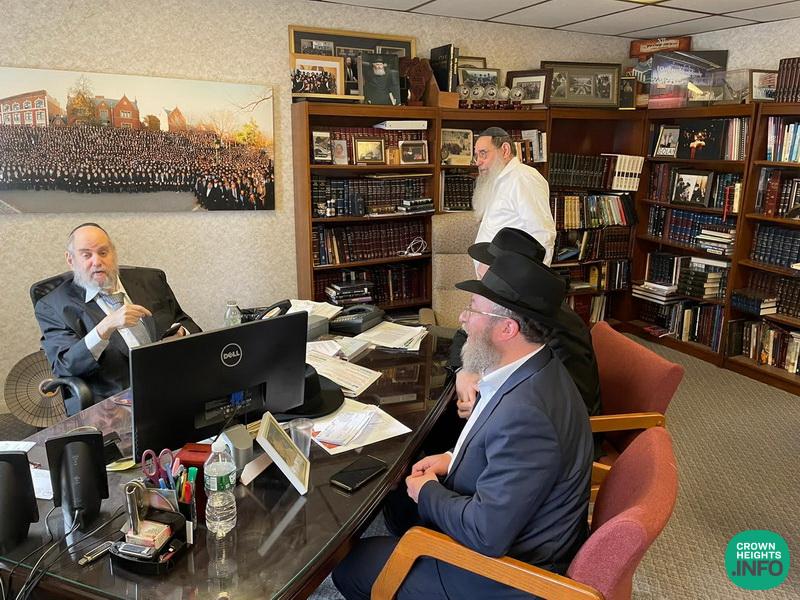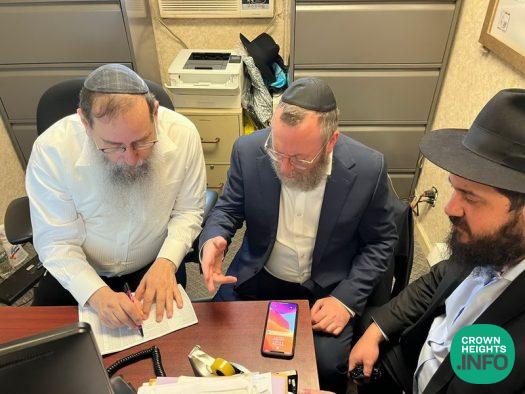
Ukraine’s Shluchim Not Alone
Forty minutes to pack, and then you have to leave home forever—what do you take? Rabbi Moshe Weber has eleven children, but his family left Dnipropetrovsk, Ukraine, with only two suitcases of clothing. Rabbi Benny Wolf of Odesa, Ukraine, was forced to leave everything behind when he rushed to catch a ferry across the Black Sea. “The kids weren’t even crying,” he said, “nobody was crying—it was too surreal.”
To help the shluchim of Ukraine through this painful time, Rabbi Moshe Kotlarsky, Vice Chairman of Merkos L’inyonei Chinuch, is personally calling up every single shliach and sending out an emergency aid package.
Rabbi Moshe Weber flew his family to safety in Israel and then traveled to New York. “I wanted to be near our Meshaliach and daven for the shluchim of Ukraine,” he said, “the one hundred eighty shluchim of Ukraine are going through an extremely tough time now.” He stayed in New York for Shabbos and met with Rabbi Moshe Kotlarsky on Sunday. “In the end,” Weber recalls, “I decided to stay for a few days and assist Rabbi Kotlarsky, he wanted to call every Ukrainian shliach.”
On Monday, Rabbi Kotlarsky joined the Vaad HaShluchim of Ukraine for a Zoom call. Rabbi Shlomo Wilhelm from Zhytomyr was on the call, as was Rabbi Shmuel Kaminezki of Dnipro, Rabbi Avrohom Wolff of Odesa, Rabbi Moshe Moskovitz from Kharkiv, and Rabbi Pinchas Vishedski of Kyiv. To create a united front in support of the shluchim, the Ohr Avner Foundation’s Rabbi Dovid Mondshine and Rabbi Shlomo Peles joined the discussion.
Since the war began, Chabad’s shluchim in Ukraine have pivoted to providing humanitarian aid for thousands of refugees and safe evacuation for those still in harm’s way. The shluchim who have left the country continue to be intimately involved in the life of their communities, and provide lifesaving aid even while on the run.
Over Zoom, Rabbi Kotlarsky and the Vaad Hashluchim discussed the logistics of Chabad’s rescue efforts. But first, they turned their attention to making sure the Shluchim themselves were being cared for.
“We’re going to be there for the Shluchim,” Rabbi Kotlarsky said, “Shluchim are never going to go hungry or without their basic needs taken care of and it must be done in the most dignified manner.” After the meeting, he personally began calling up every shliach to Ukraine and sending an emergency relief package of $5,000 to each family. This first package is designed to see shluchim through Purim, a second relief package to cover their Pesach needs is also planned.
“Shluchim cried on the phone,” Rabbi Weber said, “it meant so much to know that we are not facing this tragedy alone.” It’s not just the chief rabbis, shluchim to small neighborhoods and teachers are being focused on as well. “A Shliach once is a shliach for life,” he added.
Rabbi Weber is flying back to Israel, and the funds couldn’t have come at a better time. “I need clothes for my children,” he said, “and my family is celebrating a wedding in two weeks. You can’t imagine how big a difference this makes for Shluchim.”
Rabbi Kotlarsky’s call moved Rabbi Yaakov Neimark from Odessa. “I’ve received help from many sources,” he said, “but this personal phone call means more to me than anything to me. I was waiting for this.”
Merkos L’inyonei Chinuch, Keren Hashluchim, and the Ohr Avner Foundation have all come together to oversee the fundraising efforts. Working with the Vaad Hashluchim of Ukraine, they have created the Ukraine Jewish Relief Desk at Chabad Headquarters to coordinate rescue and refuge operations for the Jews of Ukraine, including supporting the shluchim in their hour of need.
To support the shluchim of Ukraine and the Chabad rescue efforts visit ukrainejewishrelief.org
Or email info@ukrainejewishrelief.org
